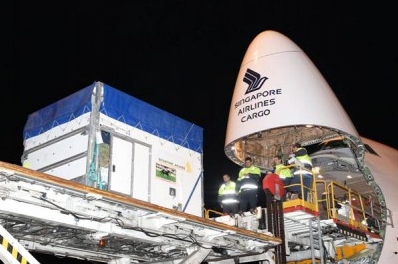
The Federal Court has ordered Cathay Pacific Airways Ltd and Singapore Airlines Cargo Pte Ltd to pay a total of $23 million in penalties for engaging in cartel conduct in breach of the Trade Practices Act 1974 (now the Competition and Consumer Act 2010).
The Australian Competition and Consumer Commission's actions against the two airlines formed part of larger cartel conduct proceedings taken against a number of international airlines. Cathay Pacific and Singapore Airlines Cargo are the eleventh and twelfth airlines to settle and their respective penalties of $11.25 million and $11.75 million (plus costs) are the second and third largest ordered.
"The penalties against Cathay Pacific and Singapore Airlines Cargo bring the total penalties ordered in Australia to $91 million. These are the highest total penalties resulting from a single ACCC investigation," ACCC chairman Rod Sims said.
"The conduct, which we consider to constitute a serious breach of the law, included an attempt by Singapore Airlines Cargo to fix rates for meat exports going to US and Australian troops stationed in the Middle East. "
"The sheer scale of these penalties will act as a strong deterrent to any business considering engaging in cartel conduct, regardless of size or country of origin. The ACCC is fiercely committed to stopping cartel conduct, which is illegal, harms competition and often increases prices for consumers," Mr Sims said.
Injunctions restraining each airline from engaging in such conduct for five years were also ordered by the Court.
The ACCC commenced proceedings against Singapore Airlines Cargo and Cathay Pacific in 2008 and 2009 respectively, alleging that they engaged in cartel conduct, including in relation to fuel and other surcharges applied to the carriage of airfreight.
As part of the settlement, Singapore Airlines Cargo admitted to contravening s45 of the Trade Practices Act by:
Arriving at, and giving effect to, price understandings relating to a fuel surcharge, security surcharge, and customs fee for airfreight services from Indonesia to Australia; Arriving at price understandings relating to rates for airfreight services between Jakarta and various destinations including Australia; and Attempting to make a price fixing arrangement with Malaysia Airlines regarding rates for airfreight services for transporting meat from Australia to the Middle East.
This occurred in January 2003, following an announcement that the US would be deploying some 35,000 troops in the Middle East. At this time, the Australian Government had also announced that it would be sending additional Australian Defence Force personnel to assist in Iraq. It was anticipated by Singapore Airlines Cargo's regional vice-president for South West Pacific, its most senior representative in Australia, that the build-up of US troops would lead to increased demand for the carriage by air of Australian meat to the Middle East.
Cathay Pacific admitted to:
Arriving at, and giving effect to, price understandings relating to a fuel and security surcharge for airfreight services between Singapore and Australia; and Attempting to make a price fixing arrangement with Qantas regarding rates for airfreight services between Hong Kong and Australia.
In September 2004, Cathay Pacific was operating a weekly 747 freighter between Hong Kong and Sydney and a new Qantas service was having a significant competitive impact. Cathay Pacific proposed that Qantas increase its price by 25 per cent to the level that Cathay Pacific was charging. Had this attempt been successful, the price increase by Qantas on a fully laden freighter would have been more than $80,000 per week.
The ACCC's trial against Air New Zealand Ltd and PT Garuda Indonesia Limited continues before Justice Perram in the Federal Court, Sydney.





